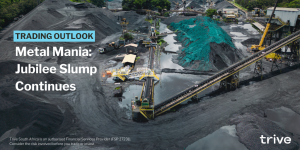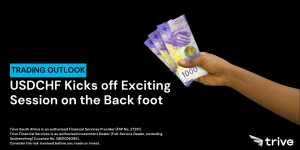
Costco Wholesale Corporation’s (NASDAQ: COST) Q2 2024 earnings report delivered mixed results, weighing on the company’s stock, which dipped over 4% in after-market trading despite a year filled with robust growth. The company’s shares traded at $752.61 after-market following its latest quarterly earnings release. Year-to-date, Costco’s shares have surged over 19%, and remarkably, they’ve soared over 61% in the past 52 weeks. This growth trajectory underscores Costco’s resilience and market appeal, especially in a retail environment fraught with challenges.
In its fiscal Q2 earnings report, Costco showcased a solid performance, with earnings per share (EPS) climbing to $3.92 from $3.30 a year earlier, surpassing analysts’ expectations of $3.62. This earnings beat highlights the company’s operational efficiency and its ability to navigate through economic uncertainties effectively. However, the company’s net sales of $58.442 billion, albeit up from $55.27 billion the previous year, slightly missed the analysts’ projection of $59.111 billion.
The shortfall in revenue estimates is attributed to weaker discretionary spending, reflecting broader economic pressures on consumer budgets. Despite this, Costco’s comparable sales growth and a significant uptick in e-commerce sales by 18.4% illustrate its ability to retain and grow its customer base. Notably, the company has chosen not to raise membership fees currently, a strategic decision that could sustain member loyalty but is a factor investors are keenly watching.
Technical Analysis
The post-earnings price action presents an interesting technical setup. While the share price fell over 4% after-hours, it continues to trade comfortably above all key moving averages [50-SMA (blue line), 100-SMA (orange line), 200-SMA (red line)] with a bullish configuration (shorter-term averages above longer-term averages).
Therefore, with the RSI (85.08) trading comfortably at overbought levels, a “gap-and-go” scenario could see the $739.25 support level tested in the coming sessions. A confirmed break below this level, particularly on significant volume, could expose lower support zones at $709.25 and $675.96.
However, the recently reached all-time high of $785.59 could come into focus should the bulls regain control in the near term. A successful bridge of the all-time high could propel the share even higher, with a 23.60% Fibonacci extension level of $813.30 acting as the next level of significance.

Summary
Costco’s post-earnings price action highlights the ongoing struggle between positive technical indicators and the recent revenue miss. While the longer-term trend remains bullish, the overbought RSI suggests a potential short-term pullback towards the $739.25 support level. A break below this level could trigger further downside. Conversely, a surge above the all-time high of $785.59 could signal renewed bullish momentum and propel the price towards the $813.30 resistance level.
Sources: TradingView, Reuters, Costco, Zack’s, Dow Jones Newswire.
Piece written by Mfanafuthi Mhlongo, Trive Financial Market Analyst
Disclaimer: Trive South Africa (Pty) Ltd (hereinafter referred to as “Trive SA”), with registration number 2005/011130/07, is an authorised Financial Services Provider in terms of the Financial Advisory and Intermediary Services Act, 37 of 2002. Trive SA is authorised and regulated by the South African Financial Sector Conduct Authority (FSCA) and holds FSP number 27231. Trive Financial Services Ltd (hereinafter referred to as “Trive MU”) holds an Investment Dealer (Full-Service Dealer, excluding Underwriting) Licence with licence number GB21026295 pursuant to section 29 of the Securities Act 2005, Rule 4 of the Securities Rules 2007, and the Financial Services Rules 2008. Trive MU is authorized and regulated by the Mauritius Financial Services Commission (FSC) and holds Global Business Licence number GB21026295 under Section 72(6) of the Financial Services Act. Trive SA and Trive MU are collectively known and referred to as “Trive Africa”.
Market and economic conditions are subject to sudden change which may have a material impact on the outcome of financial instruments and may not be suitable for all investors. Trive Africa and its employees assume no liability for any loss or damage (direct, indirect, consequential, or inconsequential) that may be suffered. Please consider the risks involved before you trade or invest. All trades on the Trive Africa platform are subject to the legal terms and conditions to which you agree to be bound. Brand Logos are owned by the respective companies and not by Trive Africa. The use of a company’s brand logo does not represent an endorsement of Trive Africa by the company, nor an endorsement of the company by Trive Africa, nor does it necessarily imply any contractual relationship. Images are for illustrative purposes only and past performance is not necessarily an indication of future performance. No services are offered to stateless persons, persons under the age of 18 years, persons and/or residents of sanctioned countries or any other jurisdiction where the distribution of leveraged instruments is prohibited, and citizens of any state or country where it may be against the law of that country to trade with a South African and/or Mauritius based company and/or where the services are not made available by Trive Africa to hold an account with us. In any case, above all, it is your responsibility to avoid contravening any legislation in the country from where you are at the time.
CFDs and other margin products are complex instruments and come with a high risk of losing money rapidly due to leverage. You should consider whether you understand how these products work and whether you can afford to take the high risk of losing your money. Professional clients can lose more than they deposit. See our full Risk Disclosure and Terms of Business for further details. Some or all of the services and products are not offered to citizens or residents of certain jurisdictions where international sanctions or local regulatory requirements restrict or prohibit them.




